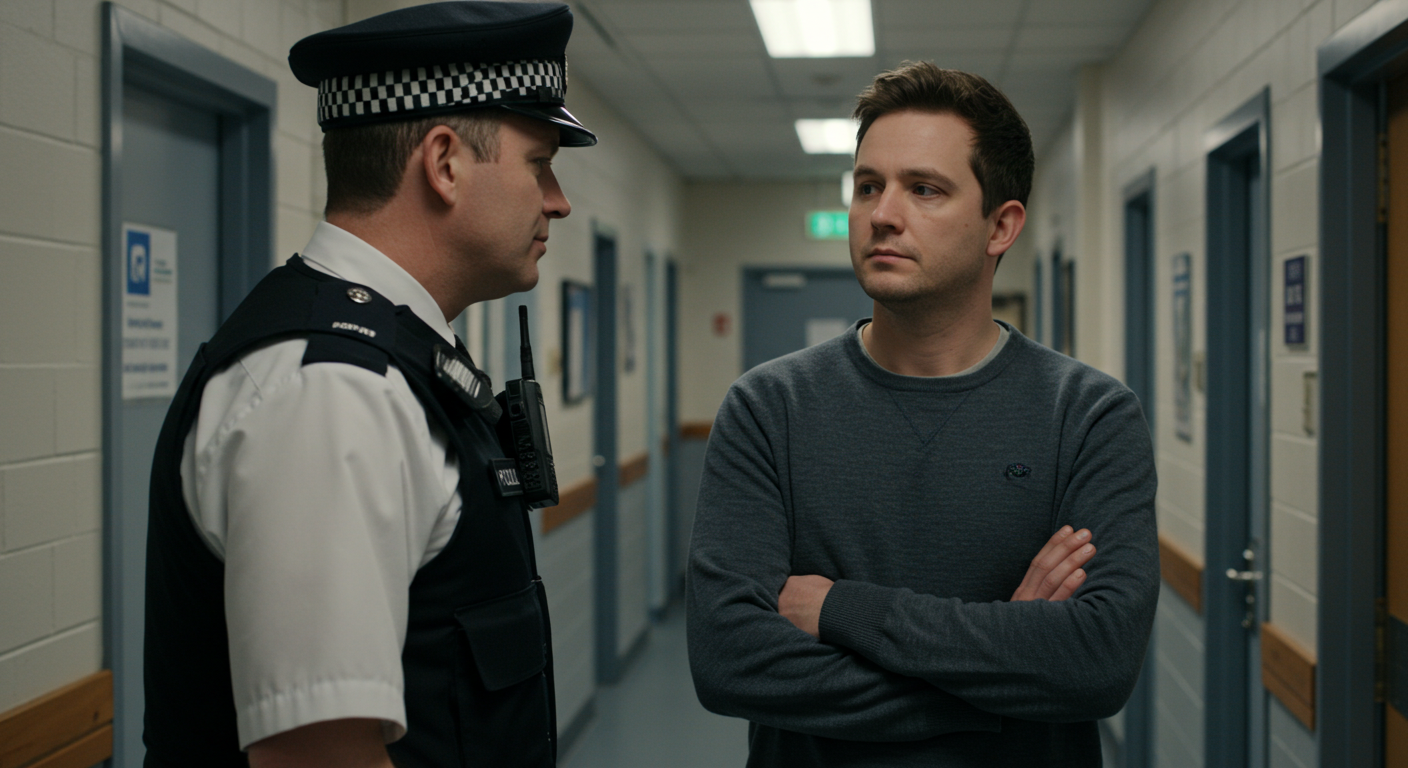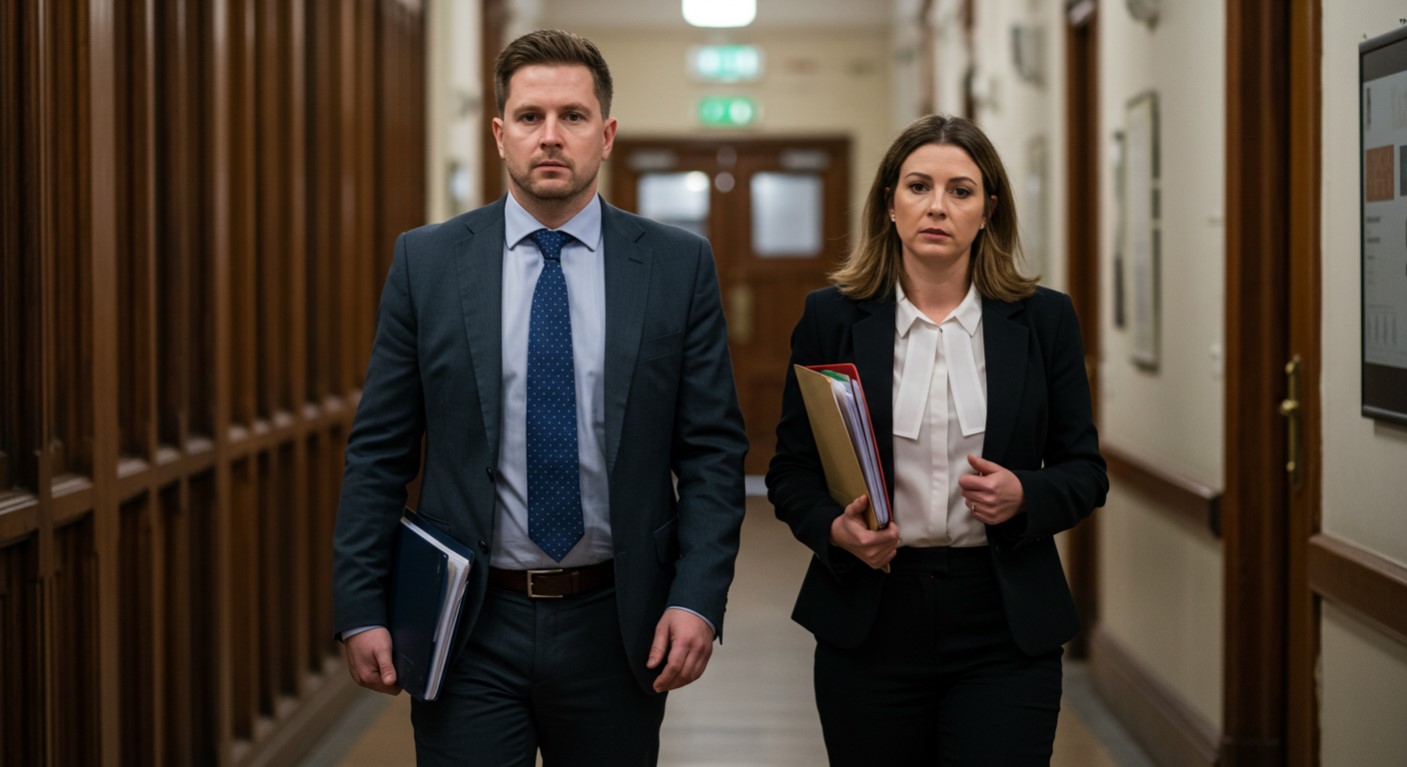The Hidden Dangers of Informal Police Conversations in England and the Critical Need for Legal Advice

The Hidden Dangers of Informal Police Conversations in England and the Critical Need for Legal Advice
In England, an informal police conversation can have unforeseen legal consequences, potentially leading to prosecution. This article examines the hidden dangers of informal police conversations and why even friendly exchanges with law enforcement can be fraught with risks, a nd emphasises the importance of seeking legal advice when contacted by the police.
The Investigative Context of Police Interactions

When the police initiate a conversation, it is often part of an investigative process. Whether or not it is immediately apparent, the individual engaged in the discussion may be a subject of interest. Unwittingly, information shared during these interactions can become pivotal in an investigation.
Risk of Self-Incrimination
A major peril in speaking informally with police officers is the potential for self-incrimination. In the absence of legal counsel, individuals might inadvertently provide information that could be used as evidence against them. This risk persists even if they believe they have nothing to hide.
Misinterpretation and Misrepresentation
Statements made during seemingly benign chats can be misinterpreted or taken out of context. Innocuous remarks may be misconstrued as incriminating, particularly in the absence of a legal representative to monitor the conversation.
Police Inquiry Tactics

It’s crucial to understand that the primary objective of the police is to gather information pertinent to their investigations. Thus, even friendly interactions are often strategically oriented towards this goal. What appears as casual conversation might be a technique to elicit information without the formalities of an official interrogation.
The Imperative of Legal Advice
Obtaining legal advice when approached by the police is essential for several reasons:
- Safeguarding Rights: A lawyer can ensure that your legal rights, such as the right to remain silent, are upheld during any interaction with the police.
- Contextual Understanding: Legal experts can help interpret the significance of the police’s inquiries and the potential ramifications of your responses.
- Advising on Statement Provision: They can guide on whether and how to provide statements to the police, ensuring any communication is legally sound.
- Prevention of Misinterpretation: Legal presence can deter the misinterpretation or misrepresentation of your words in any future legal proceedings.
Navigating Voluntary Interviews
Sometimes, the police may invite individuals for voluntary interviews. Though termed ‘voluntary’, these sessions are as critical as formal interrogations. In such scenarios, legal counsel is indispensable to inform decision-making and conduct during the police interview.
Role of Legal Representation

Legal professionals play a crucial role in:
- Interpreting Legal Implications: They provide clarity on the legal implications of police inquiries.
- Mediating Communication: Lawyers can mediate the conversation, ensuring that communication remains within safe legal bounds.
- Strategic Advice: They offer strategic advice on how to engage with the police, balancing cooperation with legal safety.
Conclusion: Navigating the Hidden Dangers of Informal Police Conversations

Engaging in an informal chat with the police in England can unintentionally lead to legal complications or even prosecution. Given the potential for self-incrimination, misinterpretation, and the strategic nature of police inquiries, seeking legal advice is not just prudent but necessary.
Legal advice acts as a vital safeguard, ensuring that your rights are protected and that any engagement with law enforcement is conducted in a manner that preserves your legal interests.
Notice: Informational Content Disclaimer
The content provided on this website, including articles, blog posts, and other informational materials, is intended for general informational purposes only. It is not intended as, and should not be considered, legal advice.
Visitors to this website should be aware that the information presented here is not a substitute for seeking legal advice from a qualified solicitor or legal professional. Each individual's legal situation is unique, and the information provided may not be applicable to specific circumstances.
If you require legal advice or have specific legal questions, we encourage you to contact us directly. Our experienced team of solicitors is here to assist you with your legal needs and provide tailored advice to address your concerns.
Please be advised that any communication through this website, including the use of contact forms or email, does not create a solicitor-client relationship. Confidential or time-sensitive information should not be sent through this website. To establish a solicitor-client relationship and discuss your legal matters in detail, please contact us for a consultation.
We strive to provide accurate and up-to-date information, but we make no representations or warranties regarding the accuracy, completeness, or suitability of the information contained on this website. We shall not be liable for any reliance placed on the information provided herein.
Thank you for visiting our website. We look forward to the opportunity to assist you with your legal needs.




